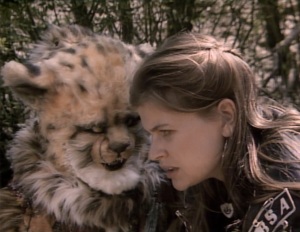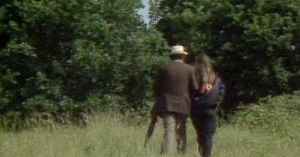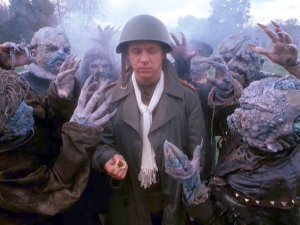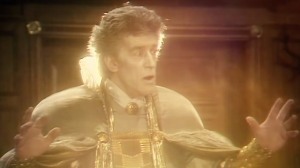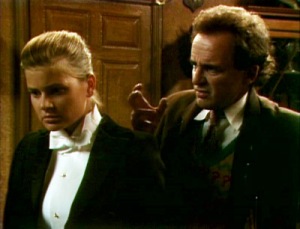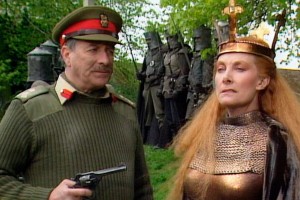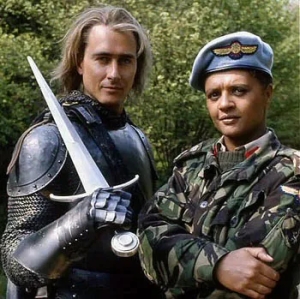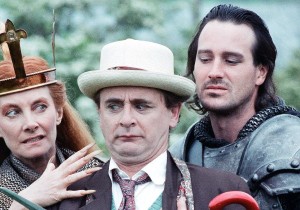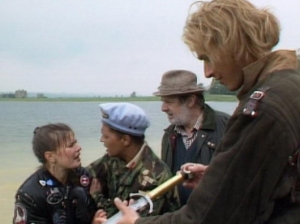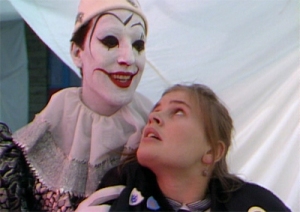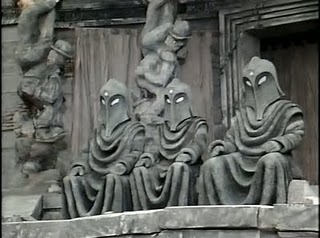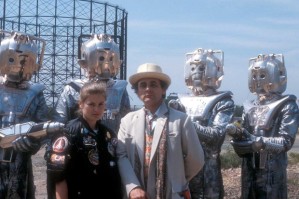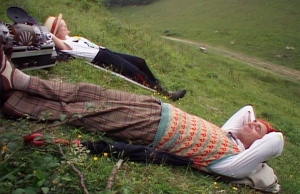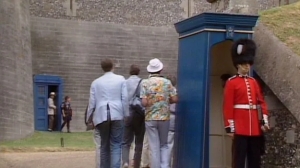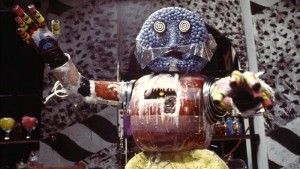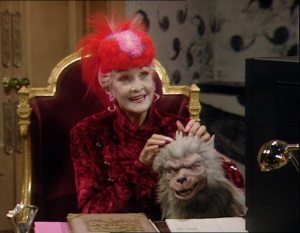Seventh Doctor
Seventh Doctor
Doctor: The Seventh Doctor
Companions: The Brigadier, Mel Bush, Ace McShane
Sylvester McCoy transforms the role of the Doctor into the universe’s most mysterious and unpredictable man putting on a brave new spin to the Doctor.
The Review
Here’s the scores for the stories
The Curse of Fenric: 10/10
The Greatest Show in the Galaxy: 10/10
Remembrance of the Daleks: 9.25/10
Battlefield: 9/10
Survival: 8.5/10
Silver Nemesis: 8.25/10
The Happiness Patrol: 8.25/10
Dragonfire: 8/10
Delta and the Bannermen: 8/10
Paradise Towers: 8/10
Ghost Light: 7.5/10
Time and the Rani: 7/10
The Seventh Doctor came in at a creative low point for Doctor Who, out of gas creatively. His first season the Doctor was a pretty generic figure just given some odd quirks for the seeming reason just to make him weird. That all changed with the introduction of Ace and the show’s dramatic late 80s revival. There’s something intoxicating to me about McCoy, he at once seems jovial and interested in stagecraft much like the actor himself, but he is one of the fiercest Doctors in condemning evil. So often they cut to the Doctor and his face is filled with unholy rage at whichever dark plotter he’s facing. The Doctor always seems to know more than he’s letting on, even when he’s putting cat food on the sidewalk. Through it all, he’s resolutely punk, leading rebellions and lying in the park with Ace listening to jazz music. The Seventh Doctor successfully made the character back into a man of mystery, and I adore McCoy’s skillful portrayal.
Now, his best moments.
5. The Doctor’s early rage and takedown of Gavrok in Delta and the Bannermen presages what is to come for the character. The Doctor doesn’t pull any punches in denouncing evil, and this is an earlier sign of that.
4. “Unlimited rice pudding!” The Doctor’s first chess master story comes in Remembrance of the Daleks, highlighted by his sneering battle of wits with Davros. In one fell swoop, the Doctor deals the Daleks their greatest defeat.
3. “is that honor?” The Doctor talks down Morgaine in Battlefield from launching a nuclear weapon describing the impersonal horror that it will cause, devastating her so completely that she backs off. Unlike many ‘good guy talks sense into evil’ speech, this one feels earned.
2. The Doctor (and McCoy himself) show off magic tricks and showmanship in The Greatest Show in the Galaxy, with the Doctor holding rapt the attention of the Gods of Ragnarok until he is able to defeat them. It’s the perfect mix of the Seventh Doctor’s clownish sensibilities but his deadly cunning underneath.
1. The showdown with Fenric in The Curse of Fenric is one of the Doctor’s greatest moments across all their incarnations. Starting with the Doctor’s desperate monologue that evil doesn’t need a name to be evil, it concludes with the Doctor breaking Ace’s heart to save the world. Never has the Doctor seemed more cruel, but the day is saved.
In-universe the reasoning for the Doctor’s sudden change when Ace joins the TARDIS are a bit suspect, but I think we can point to his worrying about the danger of Fenric. Some of the Doctor’s era feels like we should know about epic missing stories, creating the Hand of Omega, or the first time that the Doctor trapped Fenric. More than anything, it affirmed to be the value in the classic series and distilled it to its essence: Doctor Who is about squaring up and facing evil, with the benefit of time and space travel allowing for stories set in a bizarre alien circus to a small English town in World War II. Through it all, the Seventh Doctor may just be the greatest champion of good and righteousness, even if he has to break a few eggs to get there.
8.479/10 An era that saved the reputation of Doctor Who


